 Finout
VS
Finout
VS
 OpenOps
OpenOps
Finout
Finout provides a comprehensive FinOps platform designed for businesses seeking to gain full control and visibility over their cloud expenditures. Leveraging AI-powered anomaly detection and cost optimization, the solution helps teams analyze, allocate, and track cloud spending across AWS, Azure, GCP, Kubernetes, and popular SaaS services like Datadog and Snowflake on a single, centralized dashboard.
The platform offers granular cost allocation, automated reallocation of shared costs, advanced virtual tagging, custom financial planning tools, and robust alerting. With features like CostGuard for waste detection and MegaBill for unified billing management, Finout enables organizations to reduce waste, plan budgets efficiently, and foster company-wide financial accountability without the need for code changes or complex integrations.
OpenOps
OpenOps is a no-code, open-source cloud automation solution designed to streamline and optimize financial operations (FinOps) across multiple cloud environments. The platform utilizes AI-powered capabilities and offers an extensive catalog of ready-made and customizable workflow templates, enabling organizations to automate anomaly detection, cost allocation, forecasting, and policy enforcement with minimal manual intervention.
OpenOps integrates seamlessly with popular cloud providers, DevOps tools, and business management applications, facilitating granular control, efficient collaboration, and continuous improvement in cost efficiency. Advanced security measures, including ISO-27001 certification, SOC2 compliance, and GDPR adherence, ensure robust protection of organizational data while enabling safe and scalable automation. Suitable for teams seeking flexibility, rapid deployment, and deep customizability in their cloud financial management practices.
Pricing
Finout Pricing
Finout offers Paid pricing with plans starting from $1000 per month .
OpenOps Pricing
OpenOps offers Freemium pricing with plans starting from $2000 per month .
Features
Finout
- MegaBill Dashboard: Centralized dashboard to manage all cloud and SaaS infrastructure spending.
- AI-Powered Anomaly Detection: Automatic detection of cost anomalies across cloud environments for rapid response.
- Virtual Tags: Tagging and aggregation of resources across technologies with customizable rules for detailed cost tracking.
- Automated Shared Cost Allocation: Precise and automated distribution of shared expenses in multi-tenant setups.
- CostGuard: AI-driven identification of waste and actionable cost reduction recommendations.
- Custom Financial Planning: Tools for budgeting, forecast generation, commitment burndown tracking, and long-term financial planning.
- Flexible Integrations: Connectivity with AWS, GCP, Azure, Kubernetes, Snowflake, Datadog, and Databricks.
- Advanced Reporting & Dashboards: Tailor-made, shareable dashboards and detailed report delivery via Slack, email, or Microsoft Teams.
- Unit Economics Analysis: Both automatic and custom unit economics, cost per deployment analysis, and granular KPIs.
- Data Enrichment: Enrichment of metrics with usage data from existing monitoring solutions like Prometheus or Datadog.
OpenOps
- No-Code Automation: Accessible workflow creation and customization without coding expertise.
- AI Copilot: Advanced AI-driven assistance for workflow recommendations and optimizations.
- Pre-Packaged Templates: Ready-made, best-practice workflows for common FinOps scenarios.
- Multi-Cloud Integration: Seamless support for public cloud providers, cost visibility tools, and DevOps platforms.
- Human-in-the-Loop: Feedback, approvals, and collaboration embedded within automated workflows.
- Security and Compliance: ISO-27001 certification, SOC2 compliance, GDPR adherence, and transparent permission management.
- Anomaly Detection: Real-time alerts for unusual cost spikes and resource usage.
- Customizable Governance: Enforcement of cloud policies such as tagging and resource types.
- Analytics Dashboards: Centralized cost, usage, and performance visualization for collaborative financial management.
- Self-Hosted and SaaS Options: Free open-source and fully-managed cloud versions available.
Use Cases
Finout Use Cases
- Centralizing multi-cloud spending insights for finance and DevOps teams.
- Detecting and addressing cost anomalies in real-time across large and complex infrastructure environments.
- Automating precise cost allocation to business units, departments, or customers.
- Reallocating and managing shared costs between projects in single or multi-tenant environments.
- Optimizing resource usage to reduce waste and increase ROI for cloud investments.
- Planning budgets, forecasting future expenses, and tracking commitment burndown without spreadsheets.
- Designing and distributing actionable, customized FinOps reports to multiple stakeholders.
- Integrating cloud cost analytics into existing BI tools and workflows for end-to-end business visibility.
OpenOps Use Cases
- Automated detection and remediation of cloud cost anomalies.
- Allocate and track cloud spending across multiple business units and projects.
- Forecast and optimize multi-cloud resource expenses based on historical data.
- Streamline approval workflows for resource rightsizing and conversions to savings plans.
- Centralize financial, usage, and performance management across engineering and finance teams.
- Enforce organization-wide cloud policy governance and tagging standards.
- Enhance collaboration and feedback loops between FinOps, engineering, and finance staff.
- Integrate with third-party tools for unified analytics and project management.
FAQs
Finout FAQs
-
What is a cost center in Finout?
A cost center in Finout refers to a supported platform or service, such as AWS, GCP, Azure, or Datadog, from which cost information is aggregated for unified management in MegaBill. -
Are there limitations on the number of accounts or projects I can connect?
There are no limitations; users can connect unlimited AWS accounts, GCP projects, Datadog organizations, and more to Finout. -
Does Finout require deploying an agent for Kubernetes cost monitoring?
No, Finout integrates with existing Prometheus/Thanos installations or connects with Datadog directly for Kubernetes metrics without the need to deploy an agent. -
What does data enrichment mean in the context of Finout?
Data enrichment in Finout allows users to supplement their cost data with relevant usage metrics from existing monitoring solutions, enabling detailed and accurate cost analysis per unit or feature. -
How does Finout handle unit economics?
Finout supports both automatic and custom unit economics, allowing the calculation of metrics such as price per vCPU, GB, user, or transaction, sourced from technology integrations or custom inputs.
OpenOps FAQs
-
Why is OpenOps the answer to my organization’s FinOps challenges?
OpenOps bridges the gap between existing cloud service provider tools and custom-built automation by delivering customizable, AI-powered, and human-in-the-loop automation for financial operations, making it efficient and collaborative for finance and engineering teams. -
Do I need to build everything from scratch with OpenOps?
No, OpenOps provides a comprehensive catalog of ready-to-use, customizable workflow templates to streamline FinOps practices without starting from scratch. -
Does OpenOps integrate with existing cloud infrastructure and cost management tools?
Yes, OpenOps integrates seamlessly with a wide array of tools, including AWS Cost Explorer, CloudHealth, Anodot, Zesty, ServiceNow, Slack, Microsoft Teams, Jira, Asana, and more, to enhance automation and fit easily into existing ecosystems. -
What level of access does OpenOps need to my cloud environment?
OpenOps adheres to your cloud’s permission model, offering customizable access levels. It can provide insights and recommendations with read-only access and execute actions such as rightsizing with write access, all while following strict security policies.
Uptime Monitor
Uptime Monitor
Average Uptime
100%
Average Response Time
160.45 ms
Last 30 Days
Uptime Monitor
Average Uptime
99.86%
Average Response Time
158 ms
Last 30 Days
Finout
OpenOps
More Comparisons:
-
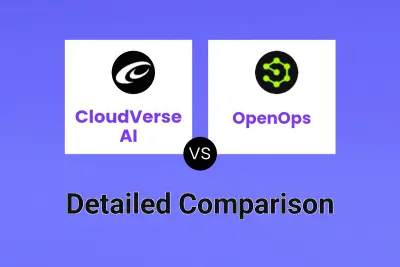
CloudVerse AI vs OpenOps Detailed comparison features, price
ComparisonView details → -
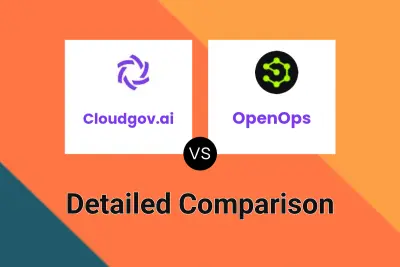
Cloudgov.ai vs OpenOps Detailed comparison features, price
ComparisonView details → -
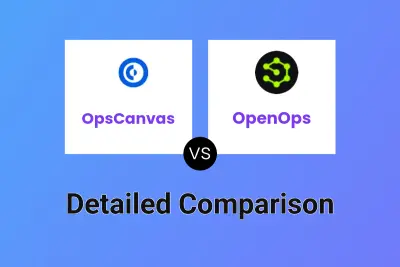
OpsCanvas vs OpenOps Detailed comparison features, price
ComparisonView details → -
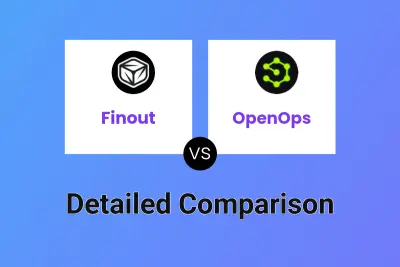
Finout vs OpenOps Detailed comparison features, price
ComparisonView details → -

Cloudchipr vs OpenOps Detailed comparison features, price
ComparisonView details → -
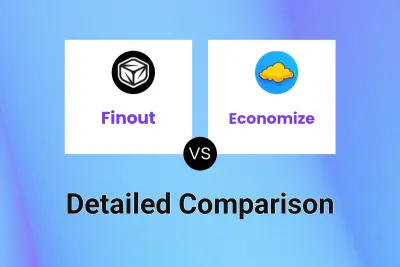
Finout vs Economize Detailed comparison features, price
ComparisonView details →
Didn't find tool you were looking for?